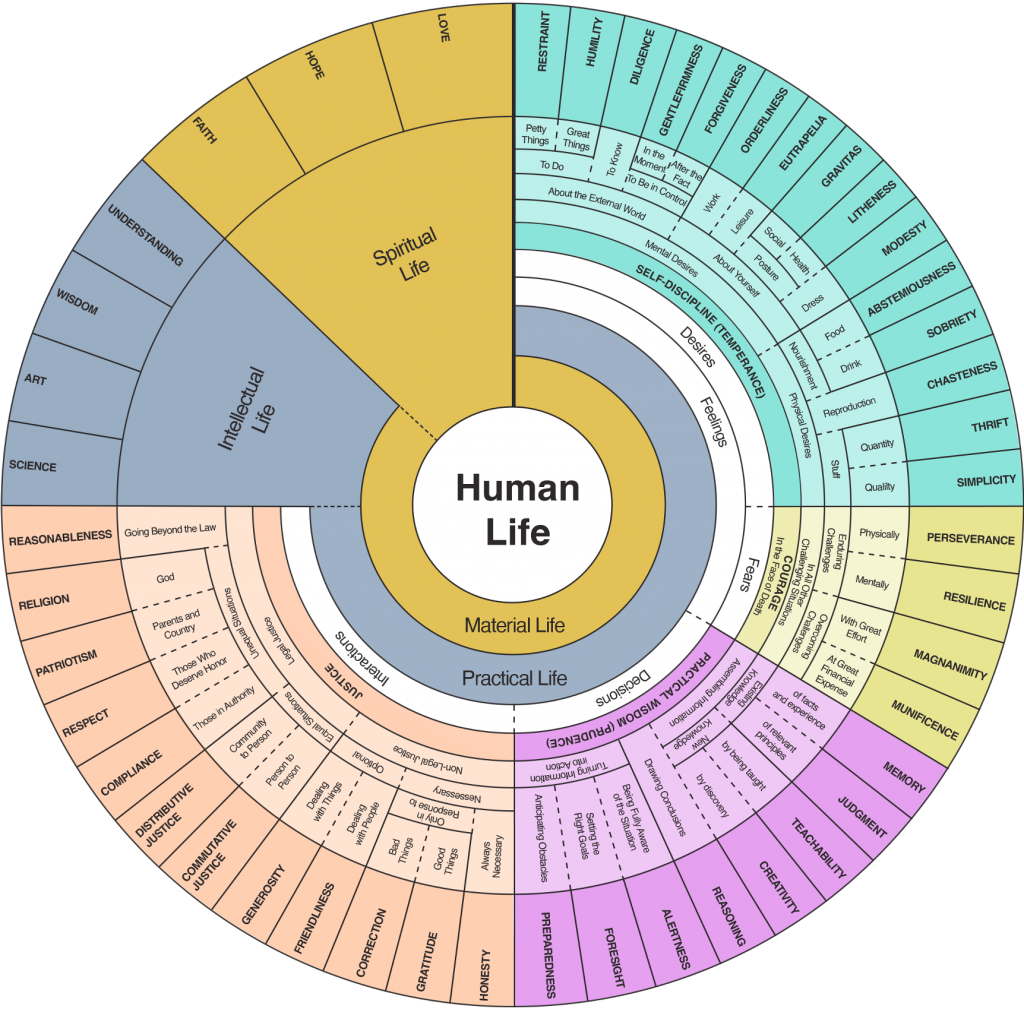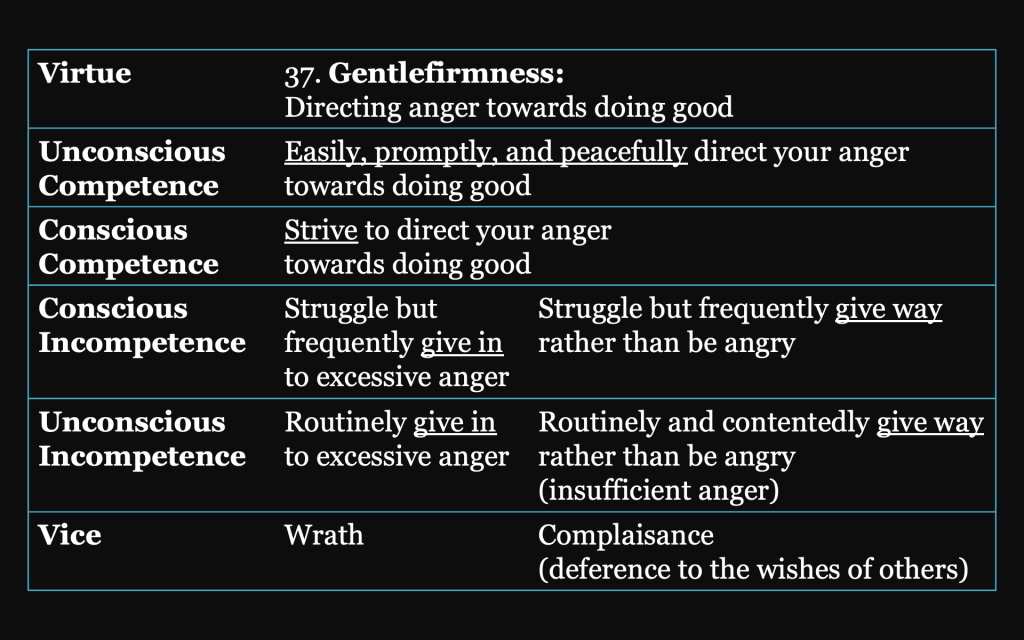Very deep in my heart, I still have a problem with unjust anger. Months ago, during daily Mass, someone’s phone went off—no problem. Then it went off again— that’s weird. Then it happened a third time—now I was getting angry. In addition, there was a fourth time, and I said, ‘Can someone please help this person?’ However, on the inside, I joked to myself about stomping on her phone and throwing it out the door! For the rest of Mass, I was thinking about this. Why? Because I get angry at the wrong things.
Furthermore, after I wrote the first draft of this homily, I was at another Mass somewhere else, where some priests were flagrantly talking during Communion, as well as Catholic teachers, and I shushed them. I know I did the right thing, but there was too much anger in my heart. I believe God exposed that I don’t act as Jesus does. I should be able to shush them firmly but without excess anger inside.
When was the last time you acted with unjust anger? While driving, at work, or at home? Who makes you routinely angry? Your spouse, elderly parents, children? Do you like yourself when you act like that?
Today’s homily is about discipleship, i.e. becoming like Jesus, when the disciple becomes like the master. Let’s meditate on four parts of the Gospel to see how Jesus loves and if, with His grace, we can do the same.
1) “The Passover of the Jews was near, and Jesus went up to Jerusalem. In the temple he found people selling cattle, sheep, and doves, and the money changers seated at their tables” (Jn 2:13-14). Here’s a picture of the one Temple:
According to scholars, there were hundreds of thousands of pilgrims coming from all over the near East, and they would enter the precincts of the Temple in waves. Since these people used foreign currency that had images of foreign kings, which was forbidden in the Temple, they had to ‘exchange their money,’ in order to buy animals that would be used for sacrifice.
Here, we learn something simple but important about Jesus: He was religious and observed the Old Testament laws. Many people today say they’re spiritual but not religious. The danger with only being spiritual is that we often pick and choose which of Jesus’ teachings we’ll follow and choose the convenient and socially acceptable ones. Yet, Jesus was spiritual and religious, because religion gives clarity! For example, Catholicism teaches that anger isn’t always wrong, but is just when it’s regarding the right things, for the right reasons, and in the right way.
2) “Making a whip of cords, he drove all of them out of the temple, both the sheep and the cattle. He also poured out the coins of the money changers and overturned their tables. He told those who were selling the doves… ‘Stop making my Father’s house a marketplace!’ His disciples remembered that it was written, ‘Zeal for your house will consume me’” (2:15-17). This is one of the few times in the Gospel where Jesus gets angry, but it wasn’t an emotional loss of control, because St. Mark tells us that the day before, He went to the Temple, saw what was going on, left, and then came back the following day and, in a controlled action, didn’t attack people or the Temple itself, but got people to leave and flipped the tables. Why? Because the selling of animals and exchange of money were obscuring the purpose of that part of the Temple, which was where non-Jews could come to encounter God. His disciples then note that Jesus was full of ‘zeal,’ but Jesus’ zeal to protect His Father doesn’t lead Him to consuming others, but it will lead to His being consumed on the Cross.
Here’s a picture of Dr. Andrew Abela’s ‘Anatomy of Virtue’, which shows the 50 virtues according to St. Thomas Aquinas:
One of them is ‘gentlefirmness’, the virtue by which we direct our anger according to what’s good. When we see someone getting bullied or taken advantage of we get angry, and we easily and peacefully do something about it. Nevertheless, there are two vices to avoid: Wrath means we get excessively angry about anything and can’t control ourselves, while complaisance means we just go along with injustice. This is why we don’t like ourselves when we blow up or when we’re cowardly. We should aim to be gentlefirm like Jesus.
3) The Jewish leaders then want to know on what authority Jesus does this, and “Jesus answered them, ‘Destroy this temple, and in three days I will raise it up…’ But Jesus was speaking of the temple of his body. After he was raised from the dead, his disciples remembered that he had said this; and they believed the Scripture and the word that Jesus had spoken” (2:18-19,21-22). Jesus uses an analogy to make people think: About what temple is He talking? The Jewish leaders refuse to think over what He’s saying, but the disciples later realize, ‘Oh! Instead of worshipping physically in the Temple, the true Temple is Jesus’ Body on the Cross and in the Eucharist!’
Matthew Kelly, head of Dynamic Catholic, once noticed how many Catholics disagree with Church teachings, like abortion, gay marriage, etc., but one study his organization did found that, “If [disciples, that is, those who have made Jesus the center of their lives] disagree with a Church teaching, they approach the issue in this way: ‘Why does the Church teach what she teaches? It is unlikely that I know better than two thousand years of the best Catholic theologians and philosophers. What am I missing?’” (The Four Signs of a Dynamic Catholic, 20-21). Jesus expects those who love Him to be humble, to ponder what He says, rather than assume He’s wrong. When we do, things become clear.
4) “Many believed in his name because they saw the signs that he was doing. But Jesus on his part would not entrust himself to them, because he knew all people and needed no one to testify about human nature, for he himself knew what was within the human person” (2:23-25). Here, people believe in Him because they think He’s a wonder-worker; later, when He’s arrested, they’ll call for His crucifixion. Jesus is not naïve. He knows people are fickle. Unfortunately, sometimes we let other people take advantage of us. We don’t stand up for ourselves at work or school and then go home and complain how people are mean.
Let me show you this commercial from the Hallow app that was aired during the Super Bowl.
But, in the actual version shown by CBS, the icon of Jesus is cropped out, the sign of the Cross of the family eating is shortened, and there are no ashes on Jonathan Roumie’s forehead!
Don’t be naïve. Jesus teaches, “If the world hates you, be aware that it hated me before it hated you” (Jn 15:18). Disciples are proud of Jesus in public, standing up for Him and for ourselves.
Are we becoming more like Jesus every year? Are we becoming more religious, gentlefirm, humble, and proud of Jesus? Now that I’ve admitted my hidden anger, I’m going to work on it. What about you?
Last week, we talked about evangelization. Today’s homily is about the church system of discipleship, and here’s the big picture with regard to our parish.
Discipleship here has been a strength, but most people don’t know that we’re in a new springtime. 2015 to 2017 was our first spring season, when Faith Studies was launched, hundreds were participating and growing; 2018 to 2020, including COVID, was our summertime, because we were mostly cruising spiritually and so many of us were going to the chapel. However, 2021 was the fall season: After years of growth, I estimate that about 150 people went through a marital crisis with Jesus, because the honeymoon was over—this is normal in the spiritual journey because Jesus wants to see if we love Him when we get nothing out of it. We used to go to daily Mass, the chapel, would serve in ministries, but not as much. 2022 and 2023 was winter, and we just needed to stabilize our following of Jesus. Last August, I recognized that we were entering a new springtime, because there was more engagement between people, people were hungry to mentor others, and many people who were new were joining these programs.
In January 2024, we had 96 people sign up for Faith Studies, Marian Consecration on Jan. 1 was extremely strong, and Journey Through Scripture was growing. This is part of our Discipleship pathway, which helps us progressively become like Jesus. Once we’ve made Jesus the center of our lives, I hope we all participate in these programs!
Thank you to all the leaders of these ministries, and thank you to all of you for financially supporting these and then participating.
In 2020, here is an excerpt of what Danah Agustin shared:
Three weeks ago, she was given the name Sr. Bernadette, and is now a novice.
This is the fruit of a community of disciples. While we won’t take any credit, please know that healthy communities are blessed with people who want to dedicate themselves to Jesus in a radical way and become entirely like Him.









